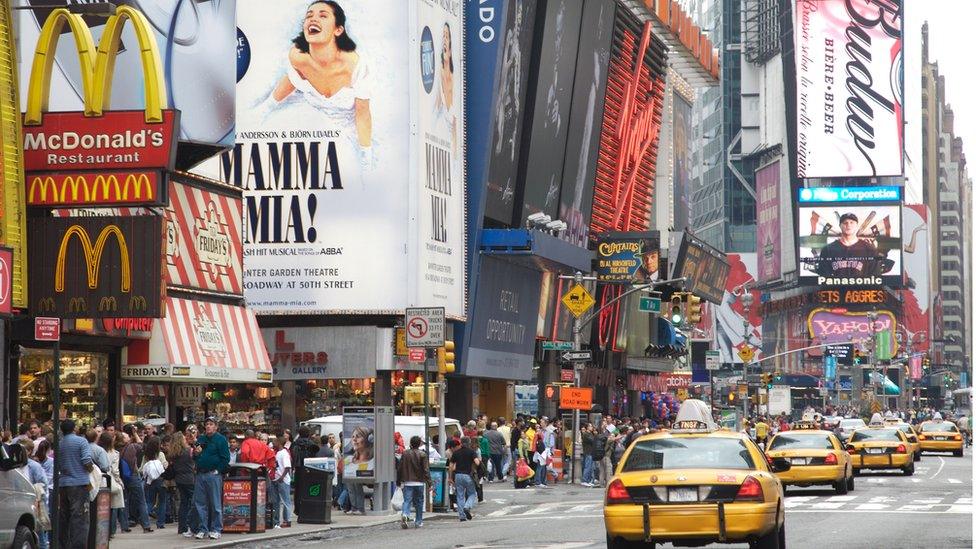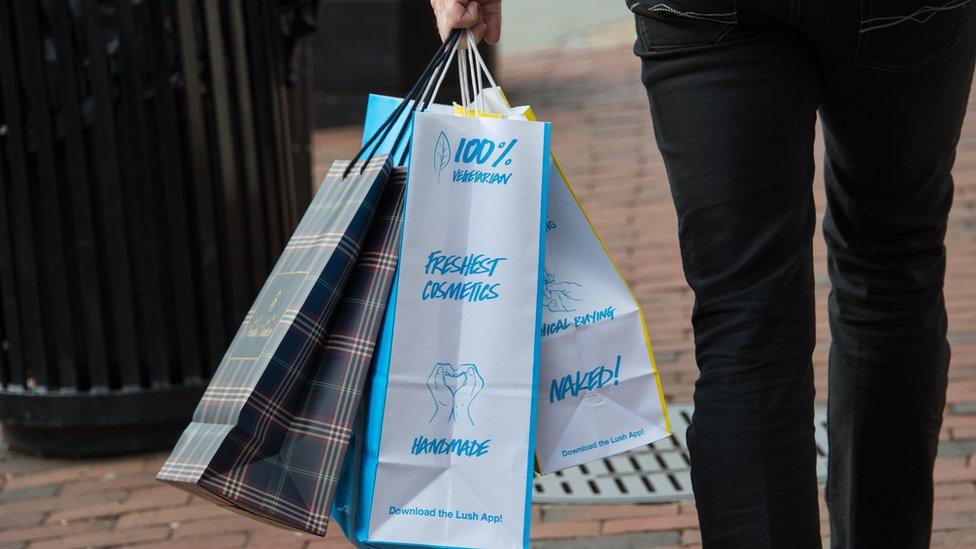US growth rate revised up to 1.2%
- Published

US growth was 1.2% in the first three months of the year, but consumer spending decelerated
The US economy grew at a faster pace than initially thought in the first three months of the year.
The latest official figures, external indicated the economy expanded at an annual pace of 1.2% in the quarter, up from the previous estimate of 0.7%.
The change came after upward revisions to business and consumer spending.
The initial estimate had been seen as a blow to US President Donald Trump, who pledged in his election campaign to raise growth to 4%.
However, the revised figure still represents a slowdown from the 2.1% growth rate recorded in the final quarter of 2016.
Consumer spending improved from the initial estimate of 0.3%, but growth remained tepid at 0.6%, slower than any quarter since 2009.
Ben Herzon, senior economist at Macroeconomic Advisers, said temporary factors, such as lower spending on heating bills thanks to a relatively warm winter, restrained first quarter growth.
"While somewhat stronger than the first report, it was still a pretty weak number," he said. "But don't fret because it's probably transitory."
The report also revised down 2016 estimates for wages and salaries, which could mean consumers have less of a cushion going forward, wrote Scott Hoyt, senior director of economic research at Moody's Analytics, in a note.
But Jennifer Lee, senior economist at BMO Capital Markets, said she's not worried about the weak consumer spending figures, which followed three quarters of 3% or more growth.
"I'm going to put that down as taking a breather," she said. "Those are pretty solid numbers so one quarter is not going to break that overall trend."

Consumer spending improved in a new report, but the rate of growth was the slowest in years
The better first quarter estimate could bolster the case for the Federal Reserve to increase interest rates at its June meeting.
In meeting minutes released this week, policymakers expressed surprised at weak first quarter economic data, but said they wanted to be sure any slowdown was temporary before taking further action.
But the improvement is unlikely to increase confidence in the economic forecasts that underpin the White House's budget proposal. Those call for 3% growth.
Is the US economic recovery stuck in a rut?
UK economic growth estimate revised down
The first three months of the year have a record of lower GDP growth rates than other quarters, which some attribute to the difficulty of accounting for factors such as heavy snowstorms.
Friday's report from the US Commerce Department said there was sluggish investment in business inventories and a $40.3bn fall in corporate profits, as compared to an $11.2bn rise in the final quarter of 2016.
That decline was affected by hefty legal settlements paid by companies that included Volkswagen and US units of Deutsche Bank and Credit Suisse, the Commerce Department said.
In a separate report on Friday, the Commerce Department said that new orders of durable goods, including defence aircraft and cars, were 0.7% lower in April than in March.
Analysts at Goldman Sachs dubbed that report "broadly disappointing" in a research note.
Ms Lee also said the report was worrisome, but she's still anticipating US growth for the year will top 2%.
"We're going to continue just keeping an eye on the jobs data," she said. "At the end of the day, it's consumer spending that's going to drive overall growth."
- Published18 April 2017
